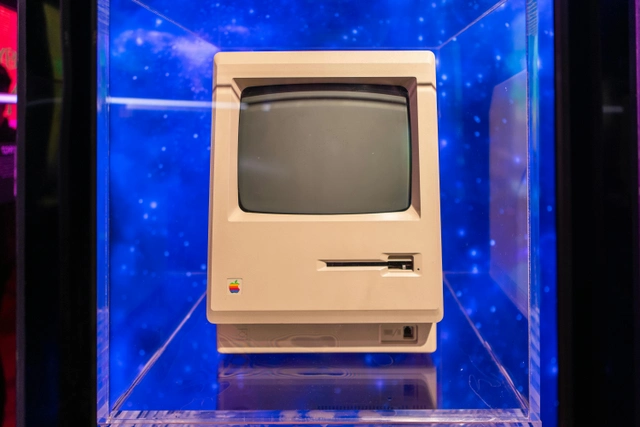Quantum Computing
A comprehensive exploration of quantum computing, its principles, development, and potential impacts
1. What is Quantum Computing?
Quantum computing is a field of study focused on the development of computers based on quantum mechanics principles. Unlike classical computers, which use bits as data units, quantum computers use quantum bits or qubits, which allow for significantly different and potentially more powerful computing capabilities.
- Classical vs. Quantum Computing: Classical computers process data in binary format, using 0s and 1s (bits) to represent information. Quantum computers, however, leverage qubits, which can exist in multiple states simultaneously due to superposition, allowing for the processing of a broader range of data at once.
- Quantum Bit (Qubit): A qubit is the fundamental unit of information in quantum computing. Unlike a bit, a qubit can be in a state of 0, 1, or both at the same time, thanks to superposition. Qubits are created using particles like electrons or photons, with their quantum states manipulated for computational processes.
- Potential Impact: Quantum computing has potential applications across fields like cryptography, materials science, and artificial intelligence, offering computational speed and power that can address problems infeasible for classical computers.
2. The Principles of Quantum Mechanics
Quantum computing is grounded in fundamental principles of quantum mechanics, such as superposition, entanglement, and interference, which differentiate it from traditional computing methods.
- Superposition: Superposition is a quantum state where a qubit can exist in multiple states simultaneously. This principle allows quantum computers to process vast amounts of data quickly by evaluating multiple possibilities at once.
- Entanglement: Entanglement is a phenomenon where two or more qubits become interconnected, meaning the state of one instantly influences the state of another, regardless of distance. Entangled qubits enable complex computations and are essential to quantum communication.
- Quantum Interference: Interference in quantum computing helps filter out incorrect calculations, enabling the selection of accurate solutions. By manipulating the probability amplitude of quantum states, interference helps quantum algorithms achieve their objectives more efficiently.
3. Key Quantum Algorithms
Quantum algorithms are designed to solve specific types of problems more efficiently than classical algorithms. Some well-known algorithms demonstrate the unique capabilities of quantum computing, particularly in fields like cryptography and database searching.
- Shor's Algorithm: Shor's Algorithm can factorize large numbers efficiently, a task that is practically impossible for classical computers on a large scale. This algorithm could revolutionize cryptography by making certain encryption methods obsolete.
- Grover's Algorithm: Grover's Algorithm accelerates the process of searching an unsorted database, achieving significant speedup compared to classical search algorithms. This capability is valuable in fields that rely heavily on search processes.
- Quantum Fourier Transform (QFT): The Quantum Fourier Transform is an essential component of many quantum algorithms, such as Shor's Algorithm. It enables quantum computers to efficiently perform certain calculations, contributing to their overall processing power.
4. Building a Quantum Computer
The construction of quantum computers requires precision engineering and specialized environments to maintain quantum coherence. Different types of quantum computers are being developed with varying approaches, such as superconducting qubits, trapped ions, and topological qubits.
- Superconducting Qubits: Superconducting qubits are commonly used in quantum computing. They rely on superconducting circuits cooled to near absolute zero, which helps maintain quantum states and allows for scalable quantum operations.
- Trapped Ions: Trapped ion quantum computers use ions held in place by electromagnetic fields as qubits. These systems offer high stability, making them an appealing option for quantum computing, though they require extremely precise controls.
- Topological Qubits: Topological qubits are a more experimental approach that could offer greater error resistance. They encode information in the 'braids' of particle paths, theoretically leading to more stable and scalable quantum computing systems.
5. Potential Applications of Quantum Computing
Quantum computing could transform many industries by solving complex problems beyond the reach of classical computing.
- Cryptography and Security: Quantum computing can break traditional encryption methods, leading to new cryptographic approaches like quantum key distribution, which is theoretically secure from eavesdropping.
- Drug Discovery and Materials Science: Quantum computers could simulate molecules and chemical reactions, accelerating drug discovery and materials research by providing accurate models at the atomic level.
- Artificial Intelligence and Machine Learning: Quantum computers may enhance machine learning by optimizing complex models and handling large data sets efficiently. This could lead to breakthroughs in fields reliant on AI, such as natural language processing and autonomous systems.
6. Challenges and Limitations
Despite its potential, quantum computing faces challenges, including error rates, stability issues, and the need for extremely controlled environments.
- Quantum Decoherence: Decoherence occurs when qubits lose their quantum properties due to interference from the surrounding environment. This presents a significant obstacle, requiring quantum computers to operate in highly controlled environments.
- Error Correction: Quantum error correction is a critical area of research since qubits are prone to errors. Developing effective error-correcting codes is essential for achieving reliable quantum computing.
- Scalability: Scaling up the number of qubits while maintaining coherence and stability remains a challenge. Building large-scale quantum computers that can tackle practical problems is a long-term goal for researchers.
Summary
- Quantum computing leverages quantum mechanics principles like superposition and entanglement to perform complex computations.
- Key algorithms such as Shor's and Grover's demonstrate quantum computing's potential in cryptography and data processing.
- Different types of quantum computers, including those based on superconducting qubits and trapped ions, are under development.
- Potential applications span fields like cryptography, drug discovery, and artificial intelligence, though challenges like decoherence persist.
- Future advances in error correction and scalability are essential to making quantum computing practical for widespread use.
References
- - Quantum Computation and Quantum Information (Book by Michael Nielsen and Isaac Chuang)
- - Quantum Computing Basics (MIT Technology Review)
- - Quantum Mechanics: The Theoretical Minimum (Book by Leonard Susskind and Art Friedman)
- - Introduction to Quantum Mechanics (Khan Academy)
- - Introduction to Quantum Algorithms (IBM Quantum Computing)
- - Building Quantum Computers (Scientific American)
- - Quantum Computing Applications (Nature Quantum)
- - Challenges in Quantum Computing (IEEE Spectrum)
keywords: quantum computing; qubits; quantum algorithms; superposition; entanglement; quantum gates.
Partner Suggestion
Top 10 Tips for a Successful Job Interview

